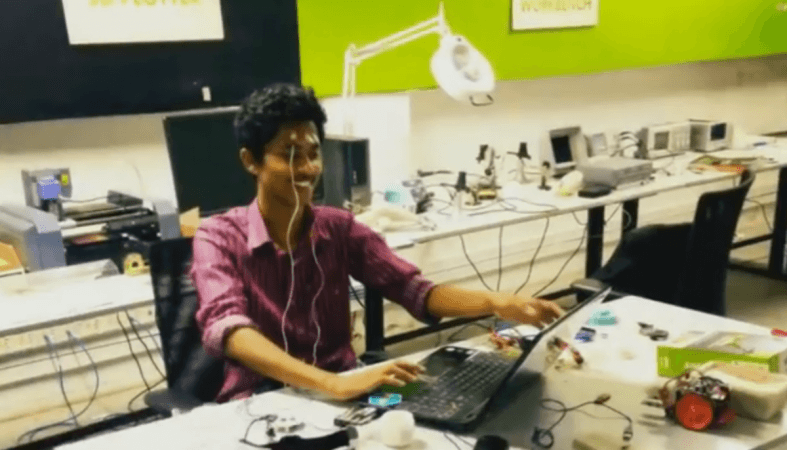
Four Indian engineering students have developed a wearable device that can detect panic and send SOS messages.
The group was earlier working on a brain mapping platform at the Centre for Neurosciences at the Indian Institute of Science. But they altered the project to make a product that would help women in distressing situations. The device is a wearable, earphone-like electroencephalogram (EEG) called Neurobuds. It acts as an interface between the user's brain and a smartphone.
They had decided to change their project after a friend was sexually harassed. Their friend had been unable to take her phone out to make a call for help.
The Central government is also working on installing SOS buttons on phones from next year to help women to get in touch with emergency contacts when in distress.
The project won the 'innovation to empower women' award at the fifth season of Accenture Innovation Jockeys held recently in Bengaluru.
"The device uses four electrodes that go inside both ears. It samples data and feeds it to the smartphone that runs an app we've developed. The app then processes the data with algorithms we wrote," George Mathew, who graduated this year as a computer science engineer from Bengaluru's Atria Institute of Technology, told the Economic Times.
Nitin Vasanth and Athul B Raj are from Cochin University of Science and Technology, while Fausya Amalh is from Model Engineering College in Kochi.
"Once a panic signal is detected, there's a 10-second gap to dismiss it. Then, it sends out alerts," Raj said. He also added that their system sends the alert to a server as in many cases the attackers snatch phones away.
With the earphones in place, it is no longer needed to manually make calls when in a panic-inducing situations. The earphone automatically analyses brain waves and triggers the SOS call.
"The biggest challenge was to simulate panic. You can do it partially with virtual reality headsets or by getting people to jump. Still, it's not real panic. We tested the device on a lot of people to drastically bring down the false positives," Mathew said.
The group tried to make the product four times before it became a working prototype.
The NeuroBud can also detect if drivers are sleepy and can monitor general mental health.

















